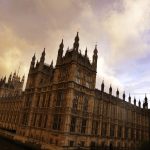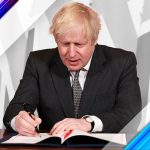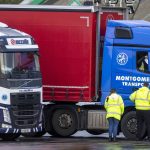The business secretary has told Sky News the UK needs to “accelerate” the rollout of preparations for an electric vehicle future while revealing government aid in the support of offshore wind power.
Kwasi Kwarteng announced that 1,340 jobs had been secured through a combination of taxpayer support and private investment at two companies in the Humber region just hours before the release of a landmark United Nations report on the pace of climate change.
Offshore wind has become an important part of the UK’s power generation mix, already accounting for an internationally-enviable 13% of electricity output last year as countries globally scramble to meet agreed carbon-cutting goals.
A total of 24% came from wind though experts warn that growth in renewables will not be enough to sustain the electric car future being demanded by ministers under the UK’s own targets.
The sale of new petrol and diesel cars is to be banned from 2030 and the car industry’s focus is on an electric-led alternative.
French energy giant EDF, which is currently building the Hinkley Point C nuclear power plant in Somerset, has used the looming prospect of a power squeeze as a rallying cry for its bid to build a sister plant at Sizewell in Suffolk.
Mr Kwarteng said that the government support for the offshore wind sector was a reflection of the region’s importance to green power generation.
It was confirmed that the Siemens Gamesa wind turbine blade factory outside Hull would double in size – with 200 new jobs created – under a £186m investment backed by cash from the £160m Offshore Wind Manufacturing Investment Support scheme.
Its products are currently being supplied to the 1.4 gigawatt Hornsea Two project off the Yorkshire coast which will be the world’s largest offshore wind power plant, powering the equivalent 1.3 million homes.
GRI Renewable Industries, which is building an offshore wind turbine tower factory creating up to 260 jobs in Hull, is also receiving taxpayer aid.
Please use Chrome browser for a more accessible video player
Mr Kwarteng said: “With its close proximity to some of the world’s largest offshore wind farms and strong skills base, the Humber region is vitally important for the growth of British offshore wind and is at the heart of our green recovery.”
In his interview with Sky News he agreed that the availability of charging points was an issue for the electric vehicle future.
“I think we need to accelerate that. I think we’re very focused on trying to get the charging points infrastructure up and running,” he said.
The car industry body SMMT has estimated the country will need 2.3 million non-household charging points by 2030.
It has said that the rate of installations is currently running at 42 per day when a figure nearer 700 is needed.
Prime Minister Boris Johnson said of the wind energy investment: “With less than 100 days to go until the climate summit COP26, we need to see more countries embracing new technologies, building green industries and phasing out coal power for a sustainable future.”






















